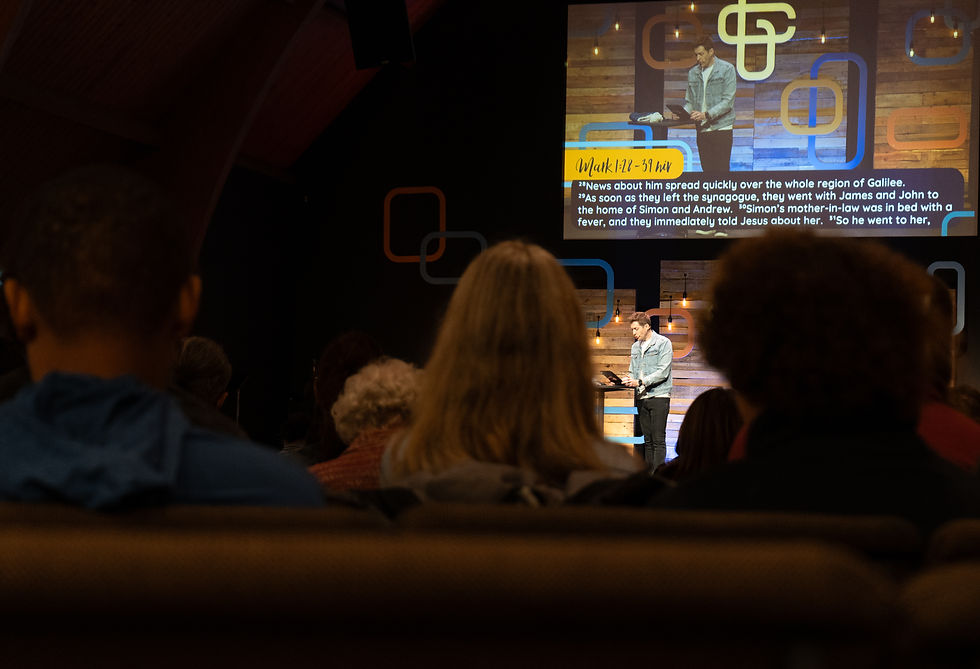Blog Series: What is Complementarianism? Part 2: Who Can do What?
- Louis Scheepers

- Aug 13, 2025
- 3 min read
Updated: Jan 14

As we shared in Part 1 of this series, complementarianism is not about one gender being subject to or less than the other. It’s about God’s design and purpose. It’s about how men and women are equal in value, dignity, and worth, and have been entrusted with distinct roles that complement one another, especially in the home and in the church.
A common question people wrestle with is: Which gender is supposed to carry out what types of tasks in the Church?
SPIRITUAL GIFTS VS SPIRITUAL ROLES
Before we talk about what this looks like at Grace Church, it’s important to answer a clarifying question related to this topic: is there a difference between spiritual gifts and spiritual roles?
The Holy Spirit gives gifts to all believers, regardless of gender. Scripture is clear, there is no gender restriction on the distribution of spiritual gifts. Men and women alike are gifted to teach, lead, encourage, serve, give, exhort, prophesy, and more. The difference is not in the gifts themselves, but in the roles we're each called to fill within the Body of Christ.
Think of it this way: Two people can have the same gift, say, the gift of hospitality, but express it through different roles. One might love to cook and prepare meals for church events, which makes people feel included and welcome at the table. Another might thrive in welcoming new people and helping them connect, helping them move from stranger to family. Same gift, different role.
WHO CAN DO WHAT AT GRACE CHURCH?
At Grace Church, women are encouraged and empowered to use their gifts fully; in Kids Church, in student ministry, in Small Groups, in prayer, on our worship teams, and even in the Sunday preaching rotation. There is only one role that we believe Scripture reserves for qualified men: the role of Elder.
Our bylaws say it this way:
“We affirm the value of both men and women as equally created in the image of God... We believe that God has gifted both men and women to serve in the local church and we value their contribution to ministry and the life of the church. We believe that the Bible teaches that the spiritual oversight of the church through the role of Elder, which includes the Lead Pastor, is reserved for qualified men to provide leadership and direction to the church.”

This aligns with the position of our wider family of churches, the Associated Gospel Churches (AGC), which also affirms that the office of Elder is to be held by qualified men. But outside of that specific role, women at Grace Church are free to serve and lead in any other space.
THE NEW TESTAMENT EXAMPLE TO FOLLOW
We believe this reflects the New Testament pattern where women played significant and visible roles in the life of the Church. Think of women like Phoebe (a deacon), Priscilla (a teacher alongside her husband Aquila), Lydia (who hosted a church in her home), or the daughters of Philip (who prophesied).
As Rev. Glenn Rider writes in the AGC whitepaper on Men & Women Sharing in Church Ministry:
“There is no indication in the Bible of any inequality of essence between male and female, nor in terms of gifting... Functionally, the only limitation placed on women in the Scriptures is that of being an Elder of the church body.”
In other words, complementarianism doesn’t restrict women from using their gifts; it provides clarity on how those gifts function within God’s design for His Church. Likewise, the Bible offers clarity for men serving in the church. Let me be clear: being a man does not automatically qualify someone to be an elder. The Bible is clear that only men who meet the required qualifications can serve as elders.
So, if you’re wondering what it means to be a complementarian church, here’s the simple version: At Grace Church, men and women serve, lead, teach, worship, and build up the Body together. We believe that within this beautiful design, God has entrusted the role of Elder to qualified men, not because men are better, but because God’s order reflects something deeper about His nature and our need for one another.
Next week in Part 3, we’ll look at some of the more difficult texts in the Bible and why they’ve often sparked confusion, disagreement, or even division. We want to be faithful to God’s Word and gracious in how we hold to it.
But for now, we hope this brings clarity: You are gifted. You are needed. And whether you are male or female, there is a place for you to serve, lead, and thrive at Grace Church.



